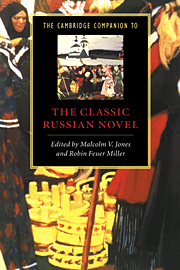9 - The Romantic tradition
from Part 3 - The literary tradition
Published online by Cambridge University Press: 28 May 2006
Summary
All novels are Romantic in the sense that they defy generic categories, combining poetry and philosophy, reportage and fantasy. “Der Roman ist ein romantisches Buch” (“The novel is a Romantic book”), according to Friedrich Schlegel, one of the greatest of Romantic theoreticians. But to speak more strictly, there is such a thing as a Romantic novel, as distinct from other types of novels (realist, science-fiction, etc.). The Romantic novel, mainly cultivated by the German Romantics (Schlegel, Novalis, Eichendorff and, to some extent, Goethe), is a free, lyrical form, often incorporating lyric poetry, concerned less with linear plot than with the exploration of inner spiritual states, of love, the mystical and the supernatural. Another type of novel that may be termed “Romantic” is the tale of exotic adventure in the manner of Chateaubriand and Scott. Both these types of Romantic novel are represented in Russian literature of the early nineteenth century, but only among the works of second-rank writers like Aleksandr Bestuzhev-Marlinskii, Aleksandr Odoevskii, and Nikolai Polevoi. The first two great Russian novels, Aleksandr Pushkin's Evgenii Onegin (1823-31, published in full 1831) and Mikhail Lermontov's A Hero of Our Time (1840), are already engaged in a struggle with Romanticism that in its intensity and explicitness goes well beyond the selfconscious play known as “Romantic irony.”
- Type
- Chapter
- Information
- The Cambridge Companion to the Classic Russian Novel , pp. 171 - 189Publisher: Cambridge University PressPrint publication year: 1998
- 1
- Cited by



